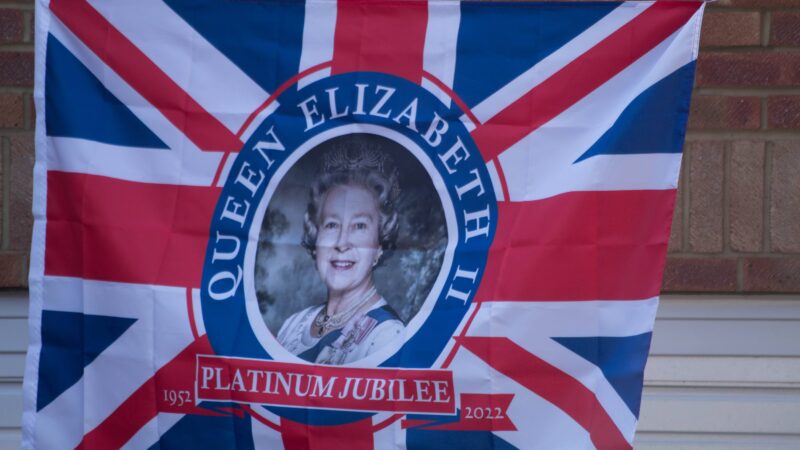While boomers indulge themselves in the same 2016 talking points on GB News for the 68th time this week, it seems like young conservatives are tired of it. The right wing of Generation Z have been raised on “Ben Shapiro DESTROYS Liberal Student” compilations. Meanwhile, while the conservative young people have moved on, the “triggered leftist” has moved on from university and into our civil service or primary schools, increasing their influence in society. And as much as we’d like to move on from cringe culture war issues, it seems like they’re not going anywhere. If we don’t confront them effectively then the left will continue to infect our institutions.
The left call the right “racist, sexist, homophobic, bigoted!” Each adjective enough to make the average wet Tory squeal apologetically and disregard the history of the party that has been told through a left wing narrative. Instead of giving the conservative argument for why an actual Conservative politician has done something, they say “yes, I know that was bad but what about this…” and then proceed to state a left wing policy pushed by a so called “right winger”.
And what do the right call the left to match their accusations of bigotry?
“Snowflakes”
It doesn’t quite have the same effect, does it?
The problem with the right is that they’re missing their own vocabulary. We don’t have the same words that appeal to the general public’s emotion as the left do. They say that we hate the poor and minorities. They say we want poor kids to starve. They say that we’re selfish. Of course, we know that’s not true. We want to see our country and community thrive.
However, unlike the left, we haven’t had mainstream institutions providing us with arguments to make. The right of Gen Z can’t have their social media pages flooded with aesthetic infographics simplifying radical Marxist rhetoric into simple slogans like the left do because there aren’t many conservative equivalents. Go onto #BorisJohnson and you’ll just see posts on how corrupt the Tories are and how Boris is a blubbering fool. Browse #KeirStarmer and you’ll see posts on Labour victories and how they’re crushing the Tories.
The Conservative Party doesn’t help with the government wasting their majority by not pushing any actual conservative policies and instead needlessly pander towards the left while they butcher the name of actual conservatives like Thatcher and Churchill to justify it. Even within the general party, a concerning number of Young Conservatives are pro-BLM and believe that a biological man in a dress is a woman. These people either have no backbone or are careerists who won’t join the Liberal Democrats because they’re irrelevant. Either way, kick them out.
Then you have the Young Conservatives who like a few Thatcher quotes and believe in general conservative principles like “free enterprise” and “equal opportunity” (which, let’s be honest, are more liberal principles). However, you can’t blame them too harshly considering that it’s much harder to discover right wing philosophy and history in comparison to that of the left. Ask an A Level Politics teacher for book recommendations and they’ll probably recommend Karl Marx’s The Communist Manifesto or Owen Jones’ Chavs. Similarly, go into Waterstones and the politics section catering ranges from septum piercing Sociology students to Keynesian #FBPE Britpoppers. Maybe you’ll find Douglas Murray’s Madness of the crowd between all the prison abolitionist and Europhile literature if you’re lucky.
However, since this generation of Young Conservatives have to go out their way to find the charm of Peter Hitchens or Roger Scruton, is it any wonder they resort to cheap arguments that the reason the left is so bad is that they’re too “progressive”?
The problem with Black Lives Matter isn’t that the activists are too sensitive. It’s that they’re promoting divisive, radical racial politics and harming people and property as a means of doing so. We shouldn’t have to say “but if the right did that then we would never hear the end of it”, we need to control the narrative. After months of destroying cities, causing damage and ruining lives, it’s ridiculous that January 6th is the focus of political extremism in the US.
After the death of George Floyd, the mainstream narrative needed a problem and a solution. They decided the problem was racism and police brutality and that the solution was police abolition and divisive critical race theory. They used it as an opportunity to sneak in other themes such as Marxism and collectivism while silencing anyone who disagreed with their dogma as “racist”. The average person who didn’t care too much about politics will just carelessly accept this narrative in order to fit in when their friends and co-workers discuss it at work.
The right could’ve offered their own solutions to the problems. A law and order argument could be called for more community policing and police accountability. Instead the right had to go on the defence, leading to the phrase “All Lives Matter” which was just received by the public of being covering up racism. We need to be proactive instead of reactive.
Similarly with transgender ideology, the right shouldn’t be focused on pronoun badges. If I was the average apolitical person and I saw that the biggest issue the right is concerned about is pronoun badges, then I’d call them “snowflakes”. They should be focused on the fact that there are perverted men trying to get their way into women’s spaces (oftentimes spaces where they are most vulnerable like domestic violence shelters) and silence any woman who speaks out about it. They should be focused on the fact that there are actors in our institutions who are trying to have conversations with children about sexuality and confuse them into later seeking out unnecessary surgery which mutilates their bodies.
If the right wants to succeed then they need to equip themselves with the right words and slogans. This is why Ron DeSantis is successful in Florida: by switching the narrative he has turned the “Don’t Say Gay Bill” into the “Anti Groomer Bill”. British Conservatives need to learn from this. It’s understandable to be fed up with the over usage of the current culture war vocabulary. However, you need to find an alternative to replace it because these issues aren’t going away.
Photo Credit



